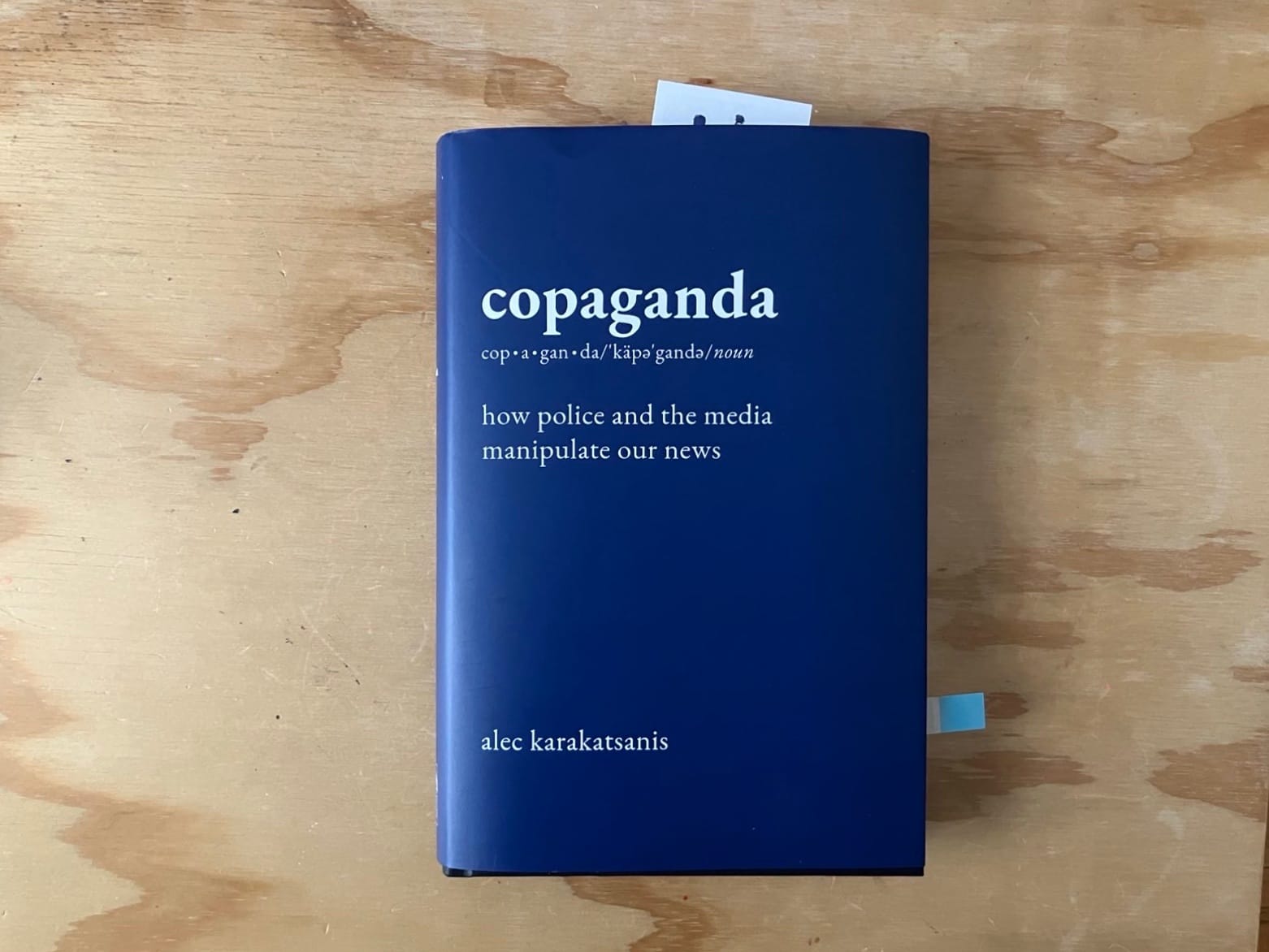Seattle Police Propaganda Efforts Underline New Book On Media Analysis

Nationally recognized civil rights attorney Alec Karakatsanis has published a new book, copaganda, dissecting the subtle, overt and sinister ways that big media across the United States push for the expansion of the for-profit "punishment bureaucracy."
Karakatsanis shows how big outlets like the New York Times have flat out printed lies as fact and how they've been on that bullshit for decades. He highlights one 1942 New York Times article titled "Japanese Enjoys Internment."
Two years ago, Karakatsanis talked with Trevor Noah about how copaganda, a portmanteau combining cops and propaganda, can dupe well meaning people into an allegiance with systems of harm.
However, national media outlets are not the only vessel for peddling copaganda.
Karakatsanis called efforts by the Seattle Police Department (SPD) to sow political narrative across the Seattle press "textbook copaganda tactics."
"I have seen firsthand this dynamic play out in city after city in which our civil rights work takes us," writes Karakatsanis. "There is a complex, and often hidden web of relationships - funded by public money - that manufactures and places police propaganda in the news. The result is 'strategic' messaging laundered for public consumption - either as objective stories or opinion pieces by seemingly neutral observers compelled to share their expertise with the public out of a yearning for a better world and nothing more."
That's exactly what happened in Seattle. I reported with Real Change how SPD executives secretly worked with SPD's future federal consent decree court monitor to publish narrative in the press aligned with SPD's political goals. Once the story got out, Crosscut took Antonio Oftelie's Op-Ed down, and their executive editor penned a reflection.
That initial report on Oftelie opened a window into a secretive world full of questions that remain unanswered today and an ongoing Public Records Act lawsuit against the city of Seattle aiming to recover text messages sent to Oftelie by SPD executives. In my lawsuit, the city admitted to violating state law.
That's a reoccurring theme across Karakatsanis' book; government, police, institutions and powerful corporations that violate the law are not the target of our societal punishment bureaucracy as it exists today.
I've followed up on Oftelie's story, uncovering his relationship with Target Corporation aimed at legitimizing police across the country without addressing institutional harm. I've daylit a trove of text messages between Oftelie and SPD executives that have raised major red flags from numerous community members. And more recently, I've uncovered a personal business relationship between Oftelie and an SPD executive, and the fact that the federal court in Seattle did not report $635,741 in payments to Oftelie to the IRS.
Karakatsanis writes that "understanding why institutions act the way they do matters for how we try to change them." His work with Civil Rights Corps has positively impacted thousands of people across the United States through high powered litigation and political advocacy.
Get the book at your local indie shop. If you're in Seattle, you can see Alec on May 15. Get your tickets here:



